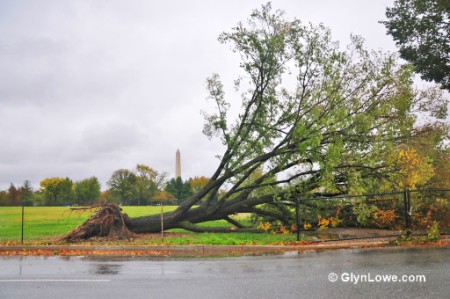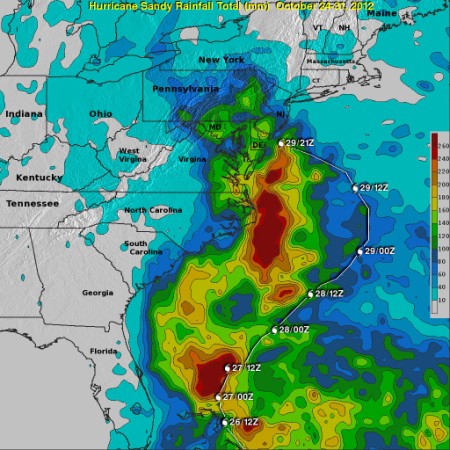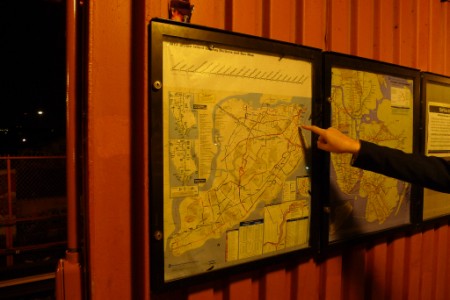
Photo by GlynLowe.com courtesy of Flickr
The stark images of hurricane Super Storm Sandy‘s impact show one devastating scene after another. Loss of lives, uprooted trees, fallen power lines, facades sheared off buildings . . . A friend from New Jersey writes: “The winds are terrifying. The Jersey Shore is obliterated.”
No one likes to imagine the dangers that can happen while traveling. But keeping fingers crossed while hoping for the best are not success strategies for coping with the unexpected while on the road.
Whether you’re a stranded traveler for a few hours or a few days, heed these top 5 tips for coping with unexpected disasters away from home:

Photo by NASA, courtesy of Flickr
1) Be prepared.
- Expectations are everything. When you have an idea of what you’re in for, you can plan accordingly. Do your homework. Check weather and travel advisories before you leave for your trip.
- Carry personal identification and your health insurance card in case you need medical assistance.
- Make two extra copies of your travel documents, including your passport. Keep one with a contact person at home and another in a separate travel bag.
- Be aware of your own medical and auto insurance coverage before investigating travel insurance options. Only then, depending on the coverage you already have, consider purchasing travel insurance, one that provides a refund for flight delays or cancellations, for instance, to give you peace of mind.
- Diversify your money options. Carry a limited amount of cash. Memorize your pin number so you can access your checking and savings accounts from an ATM machine. Bring Traveler’s Checks as a back up.
2) Stay informed.
- Before traveling abroad, consider signing up for the U.S. State Department’s free Smart Traveler Enrollment Program to receive up-to-date travel information, alerts and advisories about your destination.
- Sign up for text and Twitter updates from your airline. Check your airline’s website and Facebook page for the latest flight information.
- If possible, stay tuned to the local news forecasts for information relevant to your travel site.
- Check with the front desk or concierge at your hotel for local information.

Photo by Sean MacEntee, courtesy of Flickr
3) Stay connected.
- Leave a copy of your travel itinerary and local contact information with a friend at home.
- Update your travel information on your social media sites like Facebook.
- Program important telephone numbers in your smart phone, including the name of your hotel, local hospitals, physicians who speak English, embassies and consulates.
- If traveling with family or friends, keep a color photo of each person in your group on your smart phone.
- When local connections are lost, contact family or friends outside your travel area who often can give you a better idea of what’s happening in your area.

Photo by cuttlefish, courtesy of Flickr
4) Get your bearings.
- Be able to identify your location on a map as well as the closest hospitals, subway stations, tsunami evacuation routes, embassies and fire departments.
- Learn a few emergency phrases in the local language so that you can communicate in a crisis situation.
5) Stay smart.
- Don’t tempt Mother Nature when it comes to hurricane warnings, tsunami alerts and tornado sightings. Stay out of harm’s way.
- Avoid local demonstrations and other signs of civil unrest.
- Read the safety information provided to you on airplanes and in your hotel room.
- Pay attention to your surroundings. Stay on alert and listen to your intuition.
- Follow the safety precaution, transportation guidelines and advisories issued by local officials.
For more information on travel health and safety, be sure and check out these two posts, Top 5 Travel Safety Tips and Top 5 Tips for Healthy Travels.
For information on how you can help the victims of Hurricane Sandy, contact your local American Red Cross.
What tips do you have for surviving travel emergencies, Wanderboomers?
This is a wonderful summary – thank you! Travellers on medication already know to travel with an adequate supply of their prescription meds, but if delayed by more than a week, do you have enough?
Also, my doctor gave me a new and sterile needle and syringe for a trip some years back. I had never thought of that (and thankfully had no need for it).
You’re welcome, Astra! Yes, taking along extra meds to carry you over in case of travel delays is a great idea – as is taking along extra contact lenses if you wear the daily disposable kind like I do. Thanks for commenting.
Fantastic tips here. I’m on the road full-time now and I’m still learning everyday! Some days it’s a struggle to find time to work, when there is so much excitement around you or you are generally shattered from travel, but a fierce determination for my website to succeed pulls me through. I do need to take more notes though. I sometimes concentrate only on the story I am going to make next, without documenting EVERYTHING else round me. So much to see, so much to write about…